Toyota bZ4X vs Hyundai Inster – Differences & prices compared
Compare performance, boot space, consumption and price in one view.
Find out now: which car is the better choice for you – Toyota bZ4X or Hyundai Inster?
The Toyota bZ4X (SUV) comes with a Electric engine and Automatic transmission. In comparison, the Hyundai Inster (SUV) features a Electric engine with Automatic transmission.
When it comes to boot capacity, the Toyota bZ4X offers 452 L, while the Hyundai Inster provides 280 L – depending on how much space you need. If you’re looking for more power, decide whether the 343 HP of the Toyota bZ4X or the 115 HP of the Hyundai Inster suits your needs better.
In terms of consumption, the values are 13.50 kWh per 100 km for the Toyota bZ4X, and 14.30 kWh for the Hyundai Inster.
Price-wise, the Toyota bZ4X starts at 36800 £, while the Hyundai Inster is available from 20500 £. Compare all the details and find out which model fits your lifestyle best!
Toyota bZ4X
The Toyota bZ4X represents a bold step forward in the brand's commitment to electric mobility, showcasing an innovative design that merges futuristic aesthetics and functionality. Inside, the spacious cabin is thoughtfully crafted to provide comfort and advanced technology, ensuring a pleasurable driving experience. With its impressive range and sustainable vision, the bZ4X sets a new benchmark for environmentally conscious driving without compromising on performance or style.
details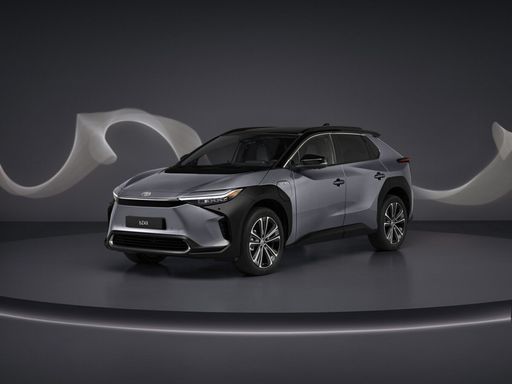 @ Toyota
@ Toyota
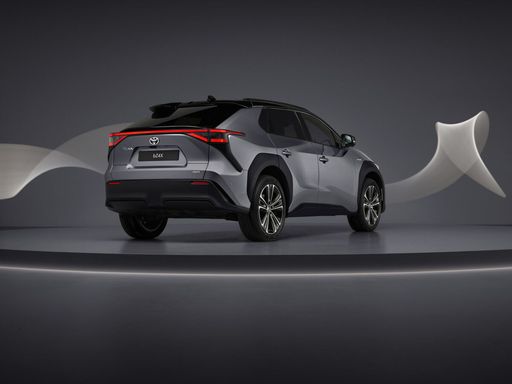 @ Toyota
@ Toyota
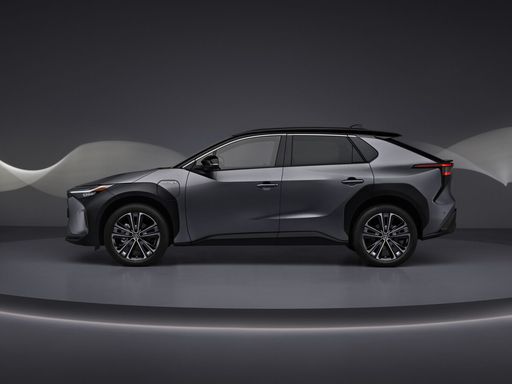 @ Toyota
@ Toyota
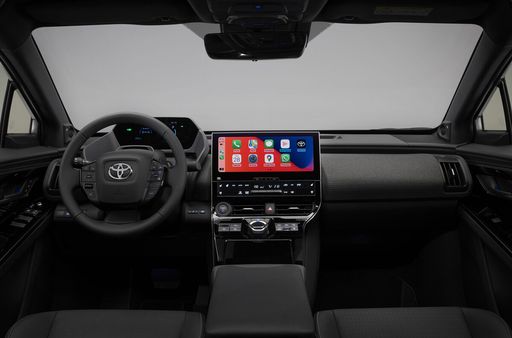 @ Toyota
@ Toyota
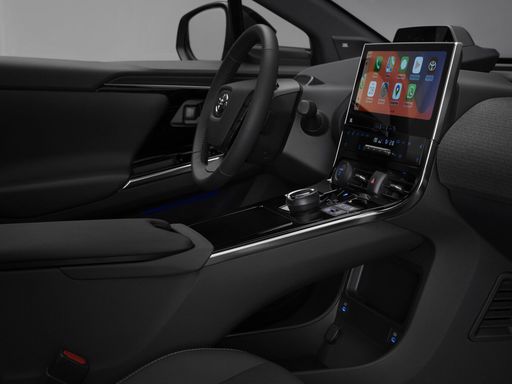 @ Toyota
@ Toyota
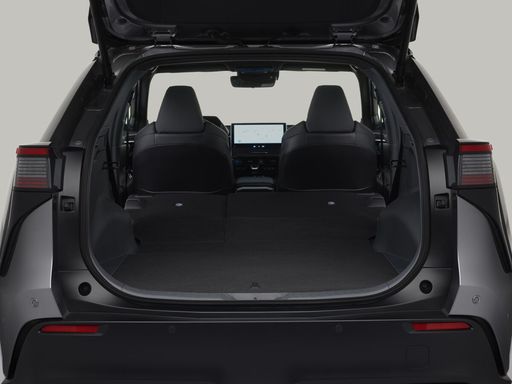 @ Toyota
@ Toyota
Hyundai Inster
The Inster has quickly captured the attention of automotive enthusiasts with its striking design and dynamic performance. This model seamlessly blends advanced technology with comfort, making it an ideal choice for both daily commutes and adventurous road trips. With its spacious interior and innovative features, the Inster promises an exhilarating driving experience that doesn’t compromise on practicality.
details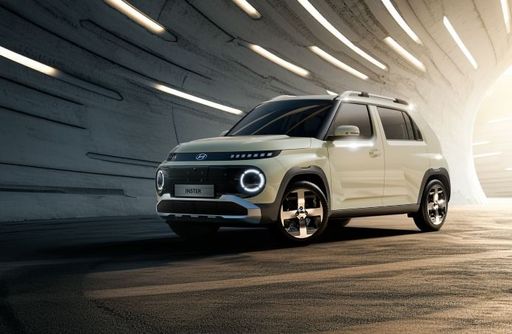 @ hyundai.news
@ hyundai.news
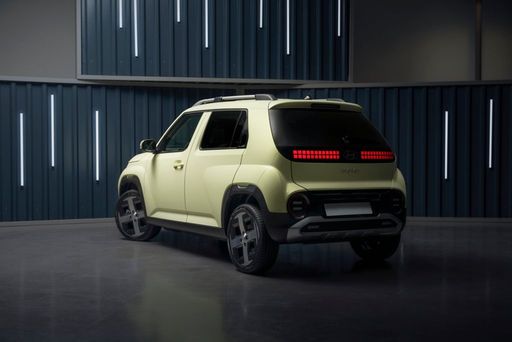 @ hyundai.news
@ hyundai.news
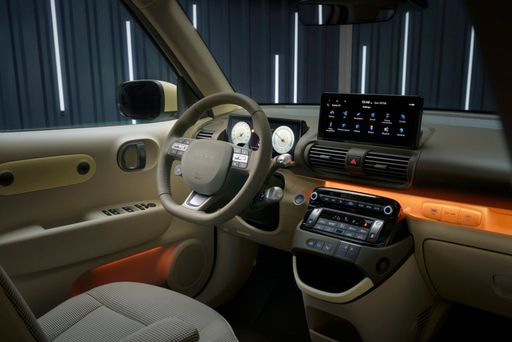 @ hyundai.news
@ hyundai.news

|

|
|
|
|
Costs and Consumption |
|
|---|---|
|
Price
36800 - 48000 £
|
Price
20500 - 25800 £
|
|
Consumption L/100km
-
|
Consumption L/100km
-
|
|
Consumption kWh/100km
13.5 - 16.2 kWh
|
Consumption kWh/100km
14.3 - 15.1 kWh
|
|
Electric Range
444 - 568 km
|
Electric Range
327 - 370 km
|
|
Battery Capacity
-
|
Battery Capacity
42 - 49 kWh
|
|
co2
0 g/km
|
co2
0 g/km
|
|
Fuel tank capacity
-
|
Fuel tank capacity
-
|
Dimensions and Body |
|
|---|---|
|
Body Type
SUV
|
Body Type
SUV
|
|
Seats
5
|
Seats
4
|
|
Doors
5
|
Doors
5
|
|
Curb weight
1970 - 2180 kg
|
Curb weight
1380 - 1433 kg
|
|
Trunk capacity
452 L
|
Trunk capacity
238 - 280 L
|
|
Length
4690 mm
|
Length
3825 - 3845 mm
|
|
Width
1860 mm
|
Width
1610 mm
|
|
Height
1600 - 1650 mm
|
Height
1575 - 1610 mm
|
|
Payload
375 - 495 kg
|
Payload
317 - 357 kg
|
Engine and Performance |
|
|---|---|
|
Engine Type
Electric
|
Engine Type
Electric
|
|
Transmission
Automatic
|
Transmission
Automatic
|
|
Transmission Detail
Reduction Gearbox
|
Transmission Detail
Reduction Gearbox
|
|
Drive Type
Front-Wheel Drive, All-Wheel Drive
|
Drive Type
Front-Wheel Drive
|
|
Power HP
167 - 343 HP
|
Power HP
97 - 115 HP
|
|
Acceleration 0-100km/h
5.1 - 8.6 s
|
Acceleration 0-100km/h
10.6 - 11.7 s
|
|
Max Speed
140 - 160 km/h
|
Max Speed
140 - 150 km/h
|
|
Torque
265 - 338 Nm
|
Torque
147 Nm
|
|
Number of Cylinders
-
|
Number of Cylinders
-
|
|
Power kW
123 - 252 kW
|
Power kW
71 - 85 kW
|
|
Engine capacity
-
|
Engine capacity
-
|
General |
|
|---|---|
|
Model Year
2024 - 2025
|
Model Year
2025
|
|
CO2 Efficiency Class
A
|
CO2 Efficiency Class
A
|
|
Brand
Toyota
|
Brand
Hyundai
|
Toyota bZ4X
A New Era with the All-Electric Toyota bZ4X
The Toyota bZ4X is a groundbreaking addition to the world of electric vehicles. This 2024 SUV promises to combine cutting-edge technology, an environmentally friendly powertrain, and exquisite design, representing Toyota's ambitious journey towards a sustainable future. Let's delve into its technical highlights and revolutionary innovations.
Performance and Efficiency
The Toyota bZ4X is available with two powertrain options: front-wheel drive and all-wheel drive. The front-wheel-drive model boasts a power output of 204 PS (150 kW), while the all-wheel-drive variant offers slightly more power at 218 PS (160 kW). Both setups utilise an efficient reduction gear transmission, allowing for smooth acceleration and optimal power delivery.
In terms of energy consumption, the bZ4X demonstrates impressive efficiency. The front-wheel-drive variants consume 14.4 kWh/100 km, whereas the all-wheel-drive versions utilise 16.2 kWh/100 km. This efficiency translates to an electric range of 461 to 513 km, positioning the bZ4X as a formidable competitor in the electric SUV market.
Innovative Design and Comfort
Emphasising design and passenger comfort, the Toyota bZ4X presents a spacious interior that accommodates five passengers comfortably. With a length of 4690 mm, a width of 1860 mm, and a height of 1600 mm, the bZ4X provides generous headroom and legroom, along with a practical boot capacity of 452 litres.
Available in multiple trim levels, including Comfort, Lounge, and Team Deutschland, each model offers a host of advanced features designed to enhance the driving experience. From intuitive infotainment systems to luxurious upholstery, the bZ4X prioritises driver satisfaction and convenience.
Technological Advancements
The Toyota bZ4X is equipped with state-of-the-art technology that enhances both safety and driving pleasure. It includes a full suite of driver assistance systems and cutting-edge connectivity features. Toyota's dedication to safety is further exemplified by the car's superior build quality and a CO2-efficiency class of A, ensuring zero emissions during operation.
Ready for the Future
As environmental concerns continue to shape the automotive industry, the Toyota bZ4X stands out as a remarkable response to these challenges. With pricing ranging from €42,900 to €52,990, this model ensures that eco-conscious consumers do not have to compromise on performance, technology, or style.
The Toyota bZ4X not only embodies the brand’s commitment to a sustainable future but also sets a new benchmark for what electric SUVs can achieve. Its combination of robust performance, innovative design, and environmental efficiency signifies a promising step forward in the realm of electric mobility.
Hyundai Inster
The automotive landscape continues to evolve, and at the forefront of this transformation is the Hyundai Inster, a dynamic model set to impress electric vehicle enthusiasts. As a compact SUV, the Inster embodies a blend of innovative technology, user-friendly features, and an eco-conscious design, making it a contender in the burgeoning electric vehicle market.
Powertrain and Performance
The Hyundai Inster is powered by an efficient electric drivetrain, offering two main battery options: a 42 kWh and a 49 kWh version. These options translate to power outputs of 97 HP and 115 HP, respectively, allowing drivers to choose based on their performance needs. The Inster accelerates from 0 to 100 km/h in 11.7 seconds for the 42 kWh variant, while the more powerful 49 kWh model reaches the same speed in an impressive 10.6 seconds, showcasing Hyundai's commitment to delivering engaging performance.
Range and Efficiency
One of the standout features of the Inster is its electric range. The 42 kWh model provides a range of 327 km, while the 49 kWh variants extend the range to 360 km and 370 km. This remarkable efficiency is complemented by consumption figures of 14.3 kWh/100 km for the 42 kWh variant and 14.9 kWh/100 km for the 49 kWh options. These figures ensure that the Inster is not only suited for city driving but also capable of handling longer journeys with ease.
Dynamic Design and Comfortable Interior
Aesthetically, the Hyundai Inster boasts a sleek and modern look, featuring a compact SUV profile that is both sporty and practical. The dimensions, measuring between 3825 mm and 3845 mm in length, with a width of 1610 mm and heights ranging from 1575 mm to 1610 mm, contribute to its spacious and comfortable cabin. The interior accommodates up to four passengers, making it an ideal choice for small families or couples.
Innovative Features
The Inster incorporates advanced technology geared towards enhancing the driving experience. Its automatic transmission, utilizing a reduction gearbox, ensures seamless gear shifts. Additionally, drivers will appreciate the array of smart features designed for convenience and connectivity, including advanced infotainment systems and driver assistance technologies.
Sustainability Credentials
Hyundai is dedicated to sustainability, and the Inster is a testament to this philosophy. With a carbon footprint of zero emissions, the Inster falls into the A CO2 efficiency class, making it a responsible choice for eco-conscious consumers. The absence of traditional emissions positions the Inster not only as an economical option but also as a proactive step towards reducing our environmental impact.
Conclusion
The Hyundai Inster stands out as a versatile and innovative solution in the electric vehicle segment. With a balanced approach to performance, efficiency, and sustainability, it caters to the modern driver’s needs and reflects the automotive industry's shift towards electrification. The future looks bright for the Inster, as Hyundai continues to pave the way for greener driving experiences.
The prices and data displayed are estimates based on German list prices and may vary by country. This information is not legally binding.
